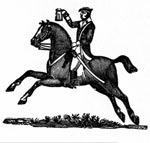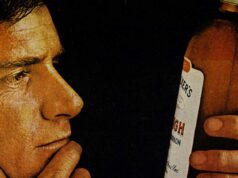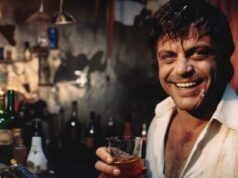 Soon after they’re born, American’s minds are stuffed with interesting and inspirational stories about their nation’s Founding Fathers. These men are a large part of our national mythology, our pantheon of mortal gods.
Soon after they’re born, American’s minds are stuffed with interesting and inspirational stories about their nation’s Founding Fathers. These men are a large part of our national mythology, our pantheon of mortal gods.
Everyone knows that George Washington could not tell a lie (he could and did), that he chopped down a cherry tree (he didn’t), that he had wooden teeth (big whoop; so did forty percent of the adult population) and that he apparently slept in every bed in New England. We know that Thomas Jefferson wrote the first draft of the Declaration of Independence in three days. We know that Paul Revere went on a late-night ride to warn folks that the British were coming. John Hancock signed his name really big “so King George could see it.” Ben Franklin flew a kite in a lightning storm, informed the world that a “penny saved is a penny earned,” invented a book called an almanac and bifocal lenses. We know many of these tales by heart by the time we can hold a Fourth-of-July sparkler without burning our fingers.
What we are not told, and I think we can guess why, is that booze played a large part in the lives of our most popular Revolutionary heroes. Like it or not, the American Revolution happened hand-in-hand with bouts of awe-inspiring drunkenness and the United States is a nation built upon intoxication.
So settle back, uncork a jug, and let’s examine some astounding facts about our Founding Fathers that many of our history books have chosen to ignore.
George Washington
George Washington is easily the most famous American. The first president of the United States. A military genius. And a full-bore hooch-hound.
To begin with, his false teeth: they were so obviously wooden because his daily intake of wine and whiskey stained the grain. No amount of soaking could alter the color, so when they got too brown he sent off for a fresh set.
When he was a young lieutenant in the Continental Army, Washington took leave to run for the Virginia State Legislature. He lost spectacularly, but learned a valuable lesson from the experience. When he ran again two years later, he met voters squarely on their terms by arranging for 144 gallons of rum, punch, cider, wine and beer to be divvied out among as many polling places as possible. If you were voting, George was buying. He won by 68 votes.
Some years and several promotions later, General Washington earned the unshakable respect of his troops by his willingness to level mountains and part waters to make sure they got their daily ration of rum. During the that hellish winter at Valley Forge, Washington insisted that the enlisted men got their rum before the officers did. It’s no surprise the men fought like tigers for their beloved commander.
At the end of the Revolutionary War, Washington reluctantly ascended to the office of President of the United States. His inaugural celebration was a hoocher’s heaven. It was illegal at the time to import rum from anywhere outside the states, but Washington ignored that silly law and ordered a barrel of Barbados’s best to go along with the hundreds of gallons of other potent potables he had arranged to keep his guests lubricated well into the night.
When he left politics and retired to his estate at Mount Vernon, Washington’s first order of business was to construct a brewery on the premises and start production of both molasses-based and ordinary beers. These he served to a never-ending stream of guests and well-wishers. His home brew was known around the state for its excellence, and he savored them himself, enjoying a couple of pints each morning with his breakfast. He also constructed a distillery and for a time was the largest producer of whiskey in the United States, cranking out 11,000 gallons in 1799 alone.
If there is anything left to be said regarding George Washington and his presidency it’s this: while in office he spent over seven percent of his sizable income on alcohol. Seven percent. On hooch.
Hail to the Chief.
Thomas Jefferson
It is true that Thomas Jefferson wrote the original draft of the Declaration of Independence over only a few hectic days. What is not generally known is that he did it while seated at his usual table in the Indian Queen Tavern in Philadelphia while downing glass after brimming glass of Madeira.
As America’s first (well, only, actually) scientist-president, Jefferson educated himself on all aspects of viniculture, including the cross-breeding of grapes and experimentation with all sorts of flavorful additives. He corresponded with wine makers in France and Germany, trading information and recipes. When Jefferson left the White House, he was stuck with an enormous $11,000 wine tab (about $200,000 is today’s dollars.)
His estate at Monticello housed both a winery and a brewery, and his wine cellar was second to none. Jefferson was fond of dinner parties and his guests knew that his table would be set with gourmet food and large quantities of delicious wine. He hated to see a guest’s glass run dry, but he also had a soft spot for his household servants, the people who made all those trips downstairs to the wine cellar and back up again. In order to make life easier on everyone, Jefferson had a dumbwaiter installed between the dining room and the wine cellar. It spared his staff’s knees and shortened the time between refills upstairs.
Dinner at Monticello was a tipsy good time.
John Hancock
The owner of the world’s most famous signature may have nodded at King George’s failing eyesight as a justification for its size, but it could well be that John Hancock signed the Declaration in so large a hand because he was more than a wee bit sozzled at the time.
Hancock was known throughout New England for his massive intake of alcohol, especially beer.
As a student at Harvard College, he was a regular at its brewery, and was known to sit in his college bed chamber drinking through to the light of dawn. After graduating, Hancock pursued a successful business career, so successful that at one point he was the wealthiest man in all the Colonies. When England tried to tax various types of alcohol, Hancock used his business connections to smuggle booze into the country and sell it at discount prices.
Hancock spent his money well, frequenting several taverns around his home in Boston. His willingness to buy rounds of beer for the house earned him an eager audience for his anti-British rhetoric. It can be argued that his beer-fueled tirades against the British crown led directly to the Boston Tea Party.
Historian Eric Burns points out that the expression “George Washington slept here” is far less accurate than “John Hancock drank here.” Such was his reputation.
Benjamin Franklin
Ben was quite fond of hearty red Madeira, and while he was something less of a dedicated drunkard than some of his colleagues, he possessed a deep understanding of intoxication and all the positive elements of tying one on. The biblical flood, Franklin insisted, went down because men became wicked from drinking too much water, something God corrected once Noah hit dry land: “God, to relieve his dryness, created the vine and revealed to him the art of making le vin. By the aid of this liquid he unveiled more and more truth.”
A man with a sense of humor, Franklin composed a list of over 200 synonyms for being smashed. A few highlights: “he’s eaten a toad-and-a-half for breakfast”; “he makes Indentures with his Leggs”; “he’s had a Thump over the Head with Sampson’s jawbone.”
Franklin also suggested that we drinkers should thank the heavens that the human elbow is located where it is because we “are enabled to drink at our ease, the glass going directly to the mouth.”
How true.
Assorted Others
Before embarking on his famous ride, Paul Revere visited the home of distiller Isaac Hall and tossed back two drafts of rum to steel himself for the coming jaunt.
Revolutionary gadfly Ethan Allen was obscenely fond of a drink called a Stonewall, a mixture of rum and hard cider (try it, it’s quite tasty). Friends often had to carry him home after the wall fell on him.
John Quincy Adams loved his wine and once correctly named eleven out of fourteen Madeiras in a blind taste test.
Patrick Henry owned his own tavern and tended bar there. Not averse to joining his customers in a tipple, many evenings found Henry stomping up and down the trestle tables, playing his fiddle and exhorting people to join him in song.
Martin Van Buren was born on the floor of his father’s tavern and spent much of his later life on the same floor after a dozen tankards of ale.
Following the drafting of the U.S. Constitution, the 55 signers celebrated the birth of the fledgling nation with a full-bore blowout, putting away 54 bottles of Madeira, 60 bottles of claret, eight bottles of whiskey, 22 bottles of port, eight bottles of hard cider, 12 beers and seven bowls of alcoholic punch large enough that, according one observer, “ducks could swim in them.”
It needs to be noted that the notorious traitor and all-around weasel Benedict Arnold didn’t care for drink and looked askance at drunkards. Which should be surprising to no one.
America. Land of the Free, Home of the Boozeheads. Let’s raise a tankard to our Founding Fathers. They would’ve done the same for us.
(Note: The Author is indebted to the works of Eric Burns, Mark Edward Lender & James Kirby Martin, Mitchell Beazley and Sharon V. Salinger.)










